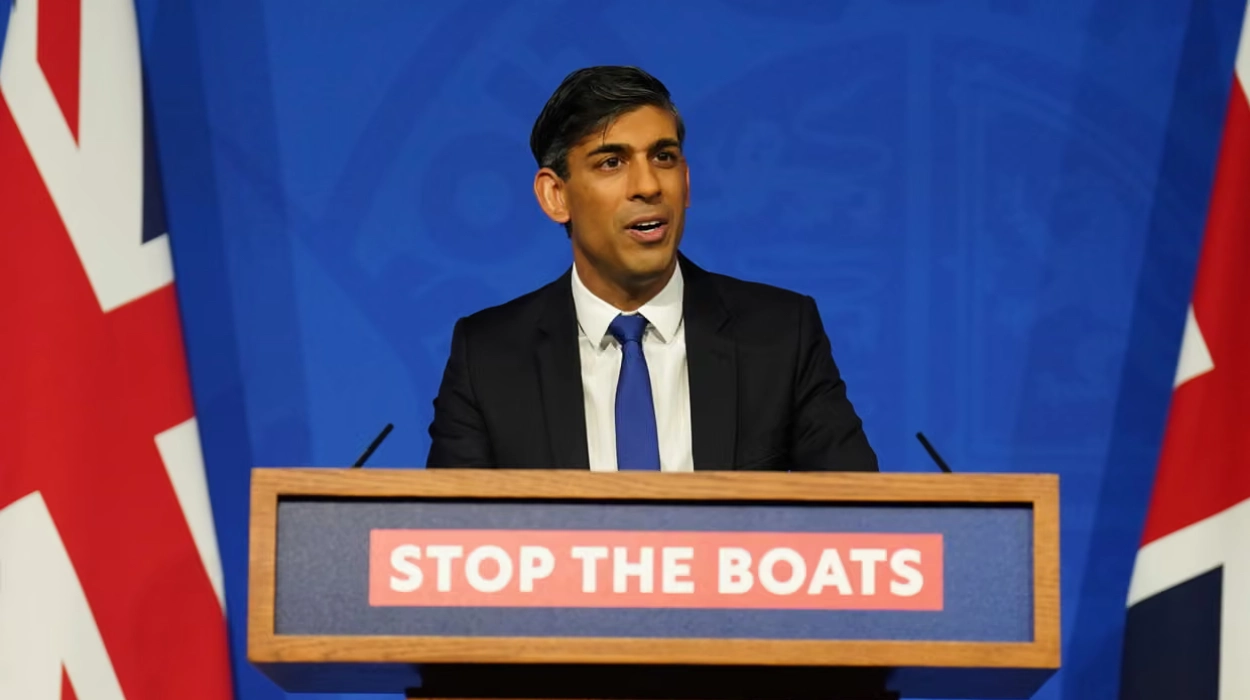UK (Parliament Politics Magazine) – UK political and media language around immigration has contributed to increasing hostility towards anti-racism efforts, a study suggests.
As reported by The Guardian, researchers have revealed that a consistent use of “hostile language” in British news coverage and parliamentary debates portrays people of colour more frequently as immigrants and often with limited compassion.
Runnymede Trust study about racist UK rhetoric
The Runnymede Trust, a race equality thinktank, studied over 63 million words from news and political sources. This included 52,990 news articles and 317 UK parliamentary debates on immigration between 2019 and July 2024.
According to the study’s authors, rhetoric from both politicians and the media has increasingly shaped “the increase in reactionary politics and backlash against antiracism, which has emboldened the far right in this country.”
The study titled, A Hostile Environment: Language, Race, Surveillance and the Media, is the second in an ongoing research series. The first edition reviewed media and parliamentary coverage of immigration between 2010 and 2014.
Researchers revealed that the word “illegal” was the most frequently linked with migrants in parliamentary debates, deepening the perception that migration is inherently criminal.
The report suggests that between 2019 and 2024, the word “illegal” became more strongly connected to “migrant” and “immigrant” in both media and parliament compared to 2010–14. The researchers said this “shows that the defining characteristic of migrants has been cemented as illegality over the past decade.”
The report reveals that since 2014, “hostile environment” policies have driven the expansion and normalisation of surveillance, relying on legislation, reporting, and data sharing.
The study found that when researchers categorised words linked to immigrants by background and location, “Mexican” was the most commonly associated term, mostly appearing in coverage related to the United States.
Researchers found that “Chinese” and “Indian” were among the most frequently linked terms to “immigrant” in UK-focused immigration news.
The study also suggests that news coverage frequently connects the term “immigrants” with identity labels such as “Asian”, “Muslim”, “Jewish”, “non-white”, “Irish”, “Haitian”, “Cuban”, “Venezuelan” and “African.”
The report said,
“Overwhelmingly, when the UK news media represents immigrants, the image that is invoked … is of an ethnically minoritised person.”
In UK parliamentary discussions, Hansard transcripts show that migration was most frequently mentioned alongside terms such as “illegal”, “net”, “committee”, “act”, “bill”, “tackle”, “level”, “reduce”, “system” and “mass.”
The study stated that parliamentarians “are more likely to use humanising terms when talking about Ukrainians,” like “guest”, “brave”, “community” or “diaspora.”
The report said,
“Racist discourse from the highest levels of UK society, including politicians and the media, is used to frame immigration as an existential threat to the British way of life … this works to justify ever more hostile immigration policies.”
The study claims,
“One stark example of the partnership between parliament and the news media in framing public perceptions of immigration in the UK can be found in connection with the ‘stop the boats’ political slogan.”
It said,
“The explicit use of this slogan by rioters in the summer of 2024 on banners and in chants demonstrates that the hostile language we have identified in our analysis has emboldened sectors of the UK public to engage in racist violence.”
The report added,
“Throughout the 2019-24 period, news articles and political debates disseminating this kind of narrative come out in fairly close alignment with each other, both reaching their peak in 2023 and declining slightly into 2024, but with still very high levels of usage.”
How is the UK tackling unrest after Southport?
The Ministry of Housing said the August 2024 disorder showed the urgent need for a fresh approach to community cohesion.
In response, a national task force has been set up, and £1.5bn is being spent to boost community services across 75 areas.
Southport incident details
- Attack: On July 29, 2024, Axel Rudakubana (17) fatally stabbed 3 girls and injured 10 at a Taylor Swift dance class.
- Victims: Elsie (7), Bebe (6), and Alice (9) died. Two adults were badly hurt.
- Riots: False claims tied him to Islam and immigration, sparking far-right riots. 50+ police injured, 111 arrested.
- Court verdict: He got life in prison (min 52 years). Had violent obsessions, ricin, and a terror manual, attack not classed as terrorism.
- Inquiry: A national probe is looking into missed areas like prior knife offences and failed interventions.
Illegal migrants in the UK in 2025
- Record crossings: Over 25,000 migrants crossed the Channel by July 2025, the highest ever this early. Nearly 900 came in one day (July 30).
- Top nationalities: Afghans (16%), Syrians (12%), Eritreans (12%), Iranians (11%), Sudanese (9%). Albanian numbers dropped due to a return deal.
- Asylum: 94% claimed asylum since 2018. By March 2025, 56,605 got protection; 30,041 were refused.
- Returns: Only 4% (5,563) of arrivals were returned since 2018. In 2025, returns rose 22%, with Albanians making up 29%.
- Costs: Hotels for asylum seekers cost £8m/day. Total cost of the small boats crisis: £3.5 billion yearly.


